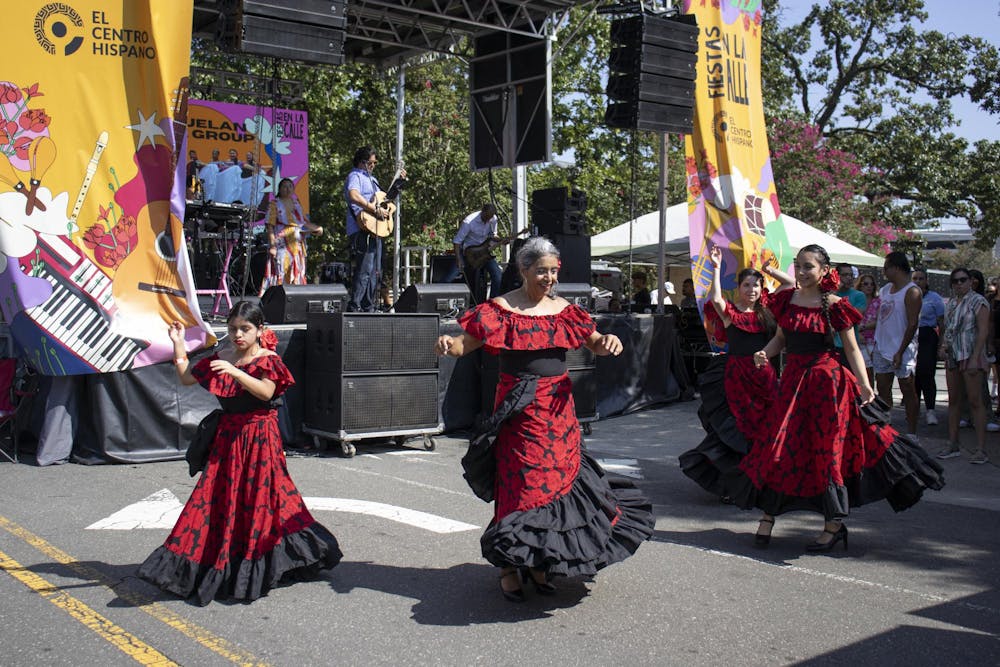On Sunday the streets of Carrboro were packed with people for the ninth annual Fiestas en la Calle, an outdoor festival of music, arts, food and community that celebrates the Triangle’s diverse Latin American population.
The festival is a project of El Centro Hispano, the longest-serving Latino nonprofit in North Carolina, which opened in 1992 and added an office in Carrboro in 2010.
From 12 p.m. to 6 p.m., West Weaver Street was closed to traffic, transformed into a stage for Latin music and traditional dance performances, as well as marketplace with a range of artisan vendors, food trucks and community engagement booths.
“This is our ninth year doing this event in Carrboro, and every year we have more people coming,” Pilar Rocha-Goldberg, president and CEO of El Centro Hispano, said. “It’s a very diverse crowd that comes to enjoy the music, the food, but also we still have information in different areas.”
Tents from El Centro’s partners offered ways to connect with the Latino community in the area, and some provided free services and information regarding health and educational resources.
El Centro operates a Hispano’s Mobile Health Unit that travels across North Carolina to make health care more accessible to Latino communities. On Sunday it parked on a side street, offering health exams and referrals to local healthcare providers.
Freddy Medina, co-founder of Boricuas en NC, said he expected some of the Puerto Rican community across the state to travel to Carrboro for the festival. Cumberland County, particularly Fayetteville, has the largest Puerto Rican population in North Carolina.
Boricuas en NC started as a social media movement to connect the Puerto Rican diaspora in the state, but it expanded to include community outreach and resources. Notably, Medina said that many nonprofits targeting Latin Americans are geared toward undocumented immigrants, which excludes Puerto Ricans.
“We’re trying to create an equitable approach for nonprofits locally that also develop products that serve the Puerto Rican community, which currently is severely underserved,” he said.




